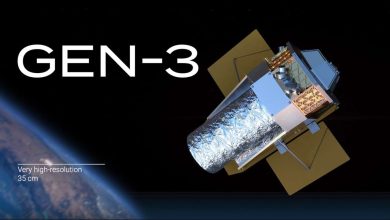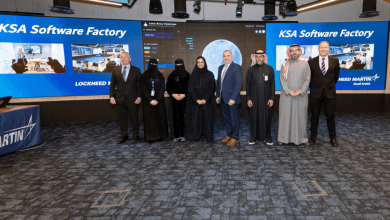
“Mayman Aerospace’s RAZOR™ VTOL Takes Flight: A Groundbreaking Leap into Autonomous Aviation”
In a significant leap forward for Vertical Takeoff and Landing (VTOL) Unmanned Aerial Systems (UAS), Mayman Aerospace has today disclosed the triumphant completion of test flights for the RAZOR P100, which is set to be the inaugural commercial aircraft in the firm’s range of autonomous UAS. This accomplishment signifies a notable milestone not only for RAZOR but also for the company’s strategic vision and market positioning.
The testing program, executed at the US Marine Corps Air Ground Combat Center situated in Twentynine Palms, CA validated 18 months of careful engineering and developmental pursuits. Most importantly, the tests featured the successful initial untethered flights of the RAZOR P100, which functioned with total autonomy while performing intricate flight maneuvers that showcased the advanced capabilities of RAZOR’s proprietary flight control software known as SKYFIELD™.

SKYFIELD, the company’s cutting-edge AI-driven autonomous flight management system, will empower numerous RAZOR aircraft to traverse complex environments independently, making essential real-time adjustments based on operational circumstances. This autonomous, AI-informed decision-making capacity will also enable the platform to adapt to shifting mission parameters and environmental conditions with accuracy and dependability.
“These test flights signify the pinnacle of remarkable engineering skill and persistent commitment from our team,” stated David Mayman, Founder & CEO at Mayman Aerospace. “What we’ve achieved places us at the forefront of autonomous VTOL flight innovations. There is simply no equivalent to the RAZOR series of aircraft available in the current market, and these triumphant tests affirm our innovative strategy in addressing intricate challenges in this sector.”
Alongside the P100’s testing series, the program showcased the initial extended-range flight of the RAZOR TBX, while successfully transporting a payload of 50 pounds. This fully autonomous beyond-visual-line-of-sight (BVLOS) operation marked the 26th flight for the TBX platform, which continues to act as both a dependable workhorse and a vital testbed for ongoing research and development initiatives.
“I couldn’t be prouder of the team’s achievements,” commented company Chief of Staff, Daniel Fox. “The warfighter has been anticipating a solution that merges versatility, autonomy, and reliability that RAZOR provides. The success of these test flights illustrates not just our technical prowess but also our comprehension of what operators genuinely require in the field.”
“From an engineering standpoint, our accomplishments over the past 18 months are extraordinary,” articulated Dr. Manu Sharma, the firm’s Chief Engineer. “Our team has navigated considerable technical hurdles to create flight control systems that facilitate unparalleled levels of autonomy and accuracy. The pace of our advancement speaks to both the expertise of our engineers and the success of our development strategy. These milestones are laying the groundwork for SKYFIELD, which will expand the boundaries even further.”
SKYFIELD will revolutionize onboard single-aircraft management into an autonomous AI-driven mission orchestration system. It will allow seamless swarming, integrated with Battle Management Systems (BMS), providing commanders with a cohesive airborne capability. Deploying a robust and secure zero-trust mesh architecture, SKYFIELD will ensure impeccable functionality in GPS-denied and heavily contested Electronic Warfare (EW) environments.
As we look forward to the remaining months of 2025, Mayman Aerospace will direct its efforts towards broadening the operational parameters of both the P100 and TBX platforms, with a particular focus on amplifying payload capabilities, extending flight range, and refining the SKYFIELD autonomous decision-making algorithms that distinguish RAZOR from traditional UAS systems.









